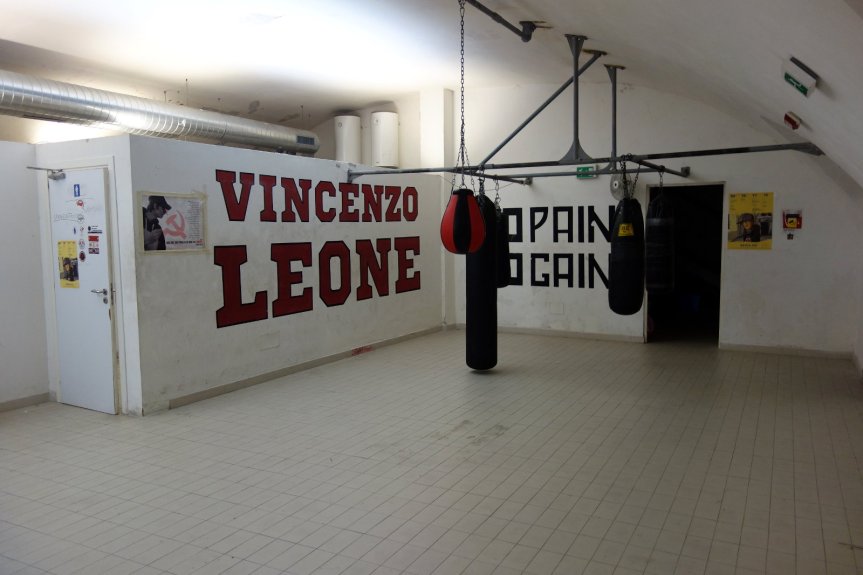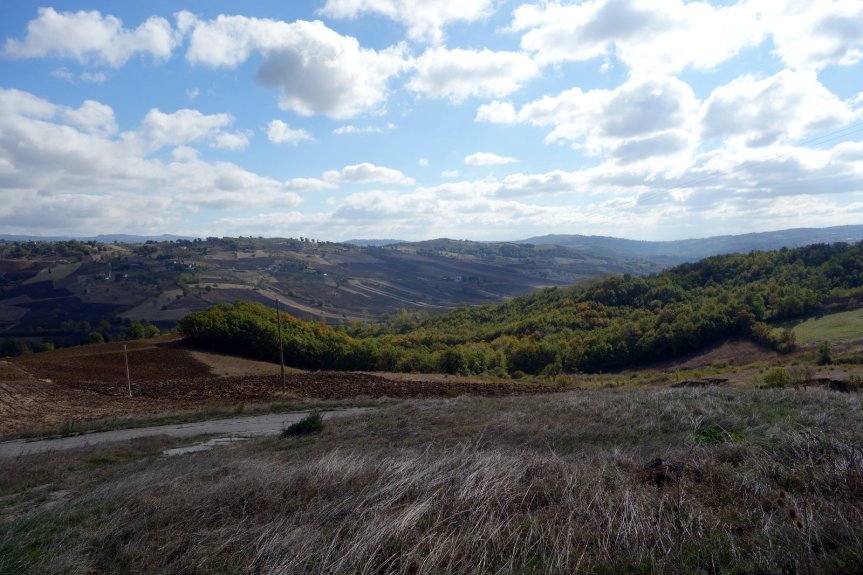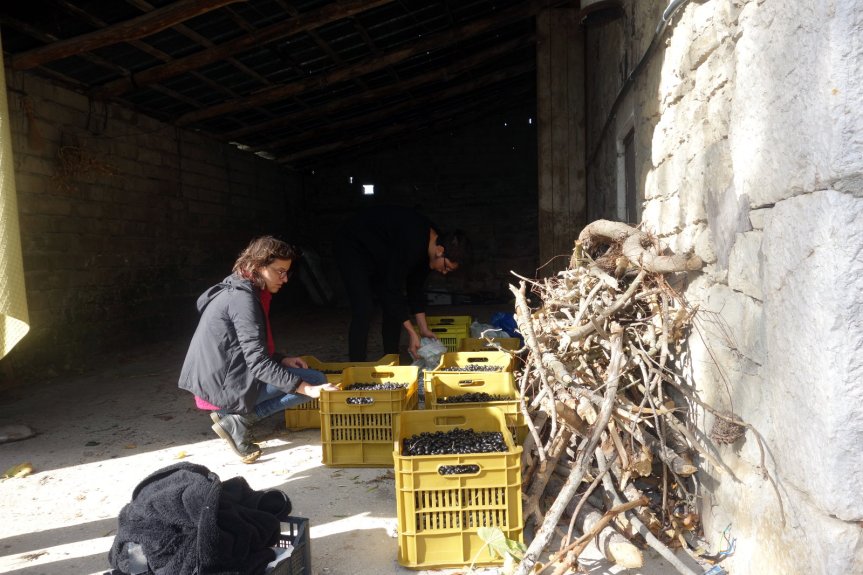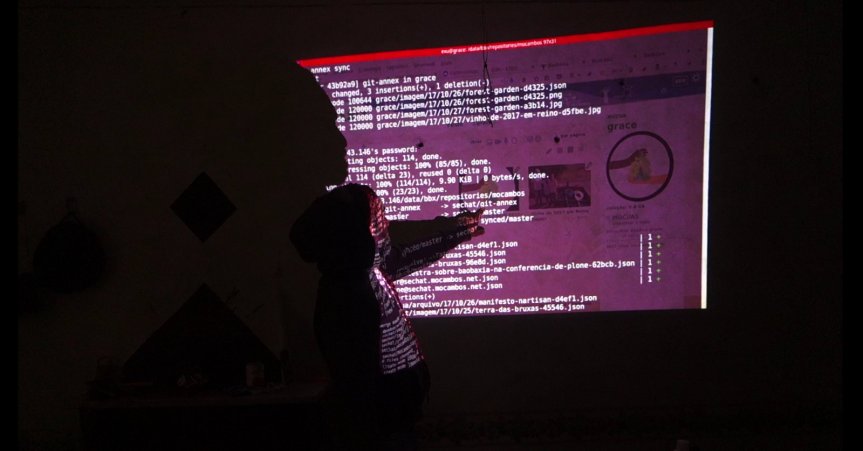Technoshamanism and Free Digital Territories in Benevento, Italy
From October 23 to 29, an international seminar about technoshamanism and the concept of “Digital Land” or “free digital territories” was held in the autonomous ecological project Terra Terra near Reino, Benevento, Italy. The event was organized by Vincenzo Tozzi announced on the Bricolabs Mailing List. The seminar was held in the form of a “Pajelança Quilombólica Digital”, as it’s called in Brazilian Portuguese, a “digital shamanism” brainstorming on the possibilities of using free digital territories to connect free real-world territories.
Vincenzo Tozzi is the founder of the Baobáxia project which is run by the Brazilian network Rede Mocambos, and the main point of departure was the future of Baobáxia – sustainability, development, paths for the future.
Arriving in Napoli, I had the pleasure of meeting Hellekin and Natacha Roussel from Brussels who had received the call through the Bricolabs list. Vince had arranged that we could stay in the Mensa Occupata, a community-run squat in central Napoli that was occupied in 2012 and is the home of a hackerspace, a communal kitchen and a martial arts gym, the “Palestra Populare Vincenzo Leone”, where I was pleased to see that my own favourite capoeira is among the activities.


The actual seminar took place in much more rural settings outside Reino, in the country known locally as “terra delle streghe” or “land of the witches”. With respect to our desire to work with free territories and the inherent project of recuperating and learning from ancestral traditions, the area is interesting in the sense that the land is currently inhabited by the last generation of farmers to cultivate the land with traditional methods supported by an oral tradition which har mostly been lost in the most recent decades. During the seminar, we had the opportunity to meet up with people from the local cooperative Lentamente, which is working to preserve and recuperate the traditional ways of growing crops and keeping animals without machines (hence the name “lentamente”, slowly) as well as trying to preserve as much as possible of the existing oral traditions.


During the seminar, we accomodated to the spirit of the territory and the settings by dividing the day into two parts: In the morning, we would go outside and work on the land until lunchtime, which would be around three o’clock. After dinner, we’d dedicate the evenings to more general discussions as well as to relaxing, often still covering important ground.
After lunch, hopefully properly wake and inspired by the fresh air and the beauty of the countryside, we would start looking at the technical side of things, delve into the code, discuss protocols and standards and explore possible pathways to the future. Among other things, we built some stairs and raised beds on a hillside leading up to the main buildings and picked olives for about twenty litres of oil.


As for the technical side of the encounter, we discussed the structure of the code, the backend repositories and the offline synchronization process with newcomers to the project, reviewed various proposals for the technical future of the project and installed two new mucuas. In the process, we identified some bugs and fixed a couple of them.
An important aspect of the concept of “free digital territories” is that we are looking for and using new metaphors for software development. Middle-class or otherwise well-off people who are used to have the means to employ servants or hire e.g. a lawyer whenever they need one may find it easy to conceive of a computer as a “server” whose life is dedicated to serving its “clients”. For armies of office workers, having a computer pre-equipped with a “desktop” absolutely makes sense. But in the technoshamanism and quilombolic networks we’re not concerned with perpetuating the values and structures of capitalist society. We wish to provide software for free territories, and thus our metaphors are not based on the notion of clients and servers, but of digital land: A mucúa or node of the Baobáxia system is not a “server”, it’s digital land for the free networks to grow and share their culture.
Another important result was that the current offline synchronization and storage using git and git-annex can be generalized to other applications. Baobáxia currently uses a data format whose backend representation and synchronization is fixed by convention, but we could build other applications using the same protocol, a protocol for “eventually connected federated networks“. Other examples of applications that could use this technology for offline or eventually connected communications is wikis, blogs and calendars. One proposal is therefore to create an RFC for this communication, basically documenting and generalizing Baobáxia’s current protocol. The protocol, which at present includes the offline propagation of requests for material not present on a local node of the system, could also be generalized to allow arbitrary messages and commands, e.g. requesting the performance of a service known to be running in another community, to be stored offline and performed when the connection actually happens. This RFC (or RFCs) should be supplemented by proof-of-concept applications which should not be very difficult to write.
This blog post is a quick summary of my personal impressions, and I think there are many more stories to be told about the threads we tried to connect those days in Benevento. All in all, the encounter was very fruitful and I was happy to meet new people and use these days to concentrate of the future of Baobáxia and related projects for free digital territories.
